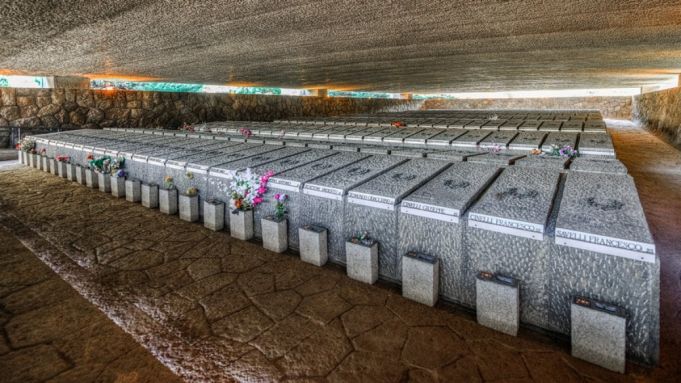Eighty years ago this week the circle of violence in German occupied Italy takes hold

The German occupation of Italy took a long step towards the outright murderous tyranny of the occupation of other European territories, when the Communist resistance killed 28 SS security police (and two Italian civilians) and wounded many more with a bomb in a Roman street. The Germans ordered ten Italians to be killed for each German and 335 people, a combination of existing prisoners some resistants and civilians taken off the street at random, were shot in the Ardeatine Caves. The Caves are now a mausoleum for the victims.
76 Royal Air Force officer prisoners of war escaped from
Stalag Luft III by tunnel. The scale of the escape enraged Hitler who
ordered that officers recaptured were to be killed; 50 were shot out
of hand. Only three escapers succeeded in reaching Britain.
Major General Orde Wingate was killed in an accidental air crash in Burma, just as his second Chindit operation, Longcloth, was getting under way. He was succeeded by Walter Lentaigne, who had been put in command of a Chindit brigade by General Wavell, commander in chief in India. Lentaigne was an entirely conventional Indian Army officer, utterly unlike the visionary Wingate. Lentaigne saw Longcloth through to as smooth a conclusion as possible given the flaws in its conception, but this marked the end of Wingate's scheme for deep penetration operations in Burma.
The British government suffered its first and most spectactular defeat in a House of Commons vote by 117 to 116 over an amendment to Rab Butler's Education Act which gave equal pay to women teachers. The amendment had been tabled by Conservative MP Thelma Cazalet-Kerr and Quintin Hogg's Reform Group of younger Conservative MPs made up most of the supporters, who were backed by Labour members. Churchill responded by overturning the amendment in a vote of confidence but a marker had been set for equal pay which reached the statute book some years afterwards.


Comments
Post a Comment